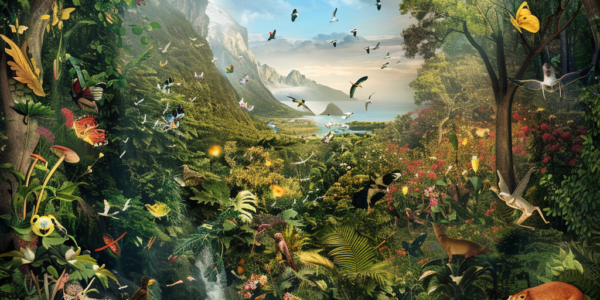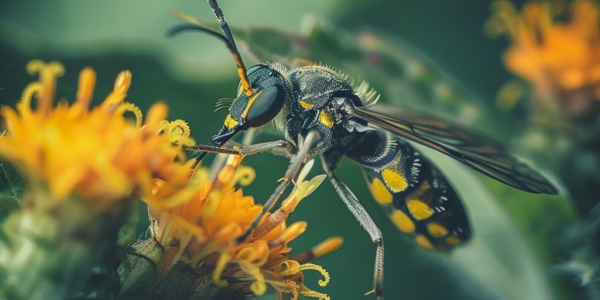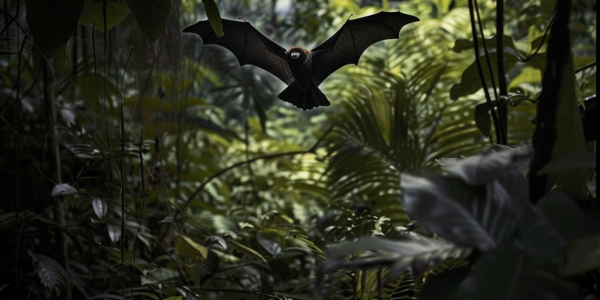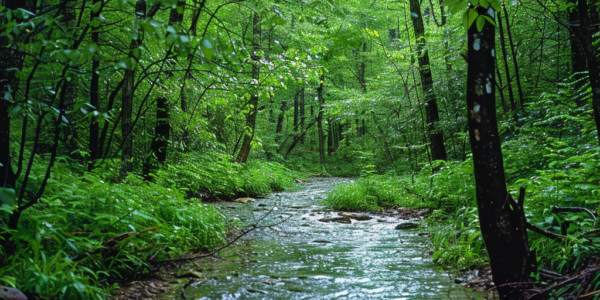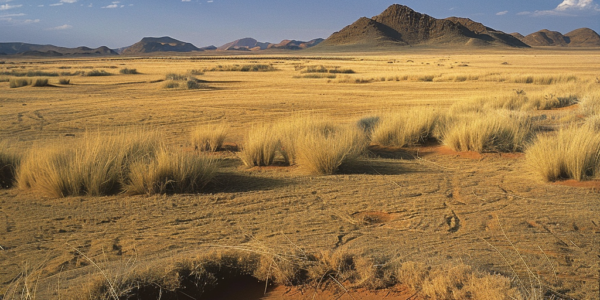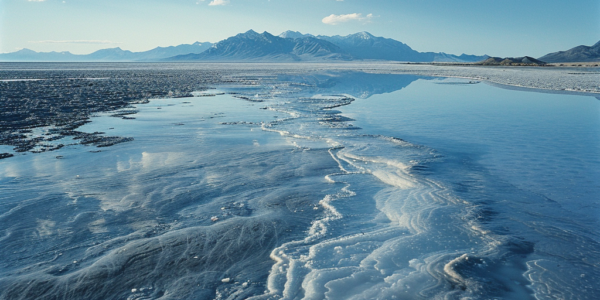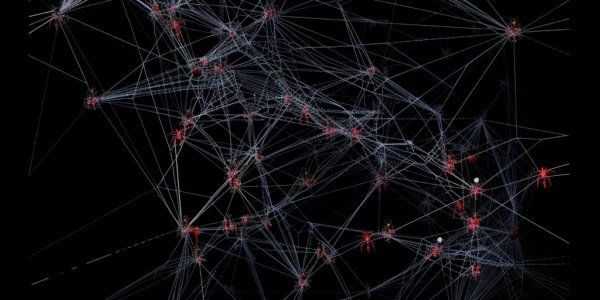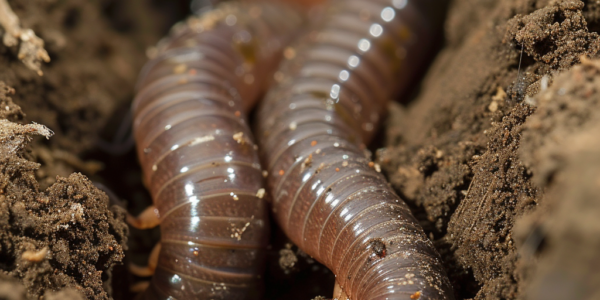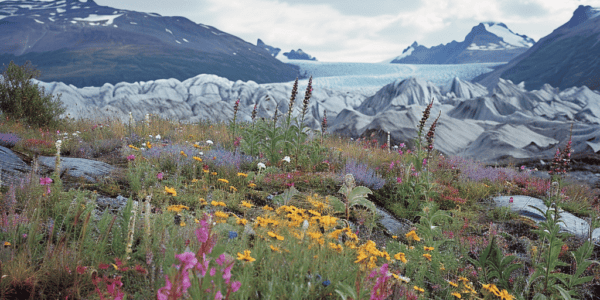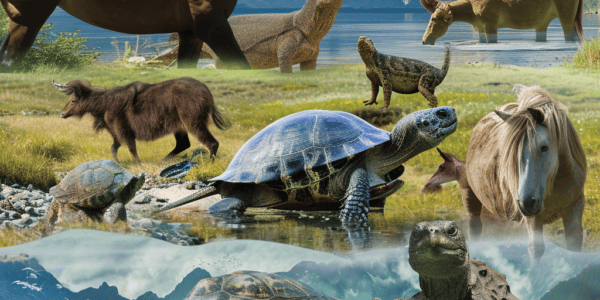Archaeological Study Suggests Cultural Diversity Increases Biodiversity of Ecosystems
Recent archaeological study suggests that cultural diversity has a positive effect on the biodiversity of ecosystems. The research challenges the idea that humans lived harmoniously with nature as hunter-gatherers and emphasizes the complex relationship between human cultural diversity and ecosystem biodiversity.
UMass Amherst Researchers Use AI to Eavesdrop on Insects for Environmental Health Assessment
UMass Amherst researchers are leveraging machine learning to eavesdrop on the insect world, aiming to enhance environmental health assessment. By identifying different insect species through their sounds, researchers hope to gain insights into the shifting populations of insects, which can provide valuable information about the overall health of the environment. The study, recently published in the Journal of Applied Ecology, highlights the increasing significance of machine and deep learning in automated bioacoustics modeling. Laura Figueroa, assistant professor of environmental conservation at UMass Amherst and the senior author of the paper, emphasizes the crucial role of insects in ecosystems and the challenges in monitoring their populations. With the rise of environmental stressors and drastic changes in insect populations, traditional sampling methods are proving to be insufficient. The collaboration between ecologists and machine-learning experts is seen as a promising approach to fully unlock the potential of AI in identifying and monitoring insect populations. The potential of AI in environmental health assessment is evident, offering a non-invasive and efficient alternative to traditional entomological methods. As Figueroa points out, the ability to differentiate insect sounds and train AI models to identify species based on their unique sounds opens up new possibilities for understanding and safeguarding insect populations in the face of environmental challenges.
Ecological Countermeasures for Preventing Pathogen Spillover
Learn about the importance of ecological countermeasures in preventing pathogen spillover and subsequent pandemics. This article emphasizes the need for a shift in focus towards prevention and proposes ecological interventions to disrupt spillover mechanisms. Discover the role of ecological approaches in a comprehensive pandemic prevention strategy and the significance of investing in prevention to complement existing preparedness and response efforts.
Surprising Discovery About Energy Exchange in Natural Ecosystems
Scientists have discovered a surprising balance of energy exchange in natural ecosystems, with forests and streams engaging in an equal exchange of energy. The study uncovers the role of nutritional quality in maintaining this balance and explores how allochthony patterns differ among various species groups and across diverse climates. This research provides important clues about how these intricate exchanges might shift in response to changing environmental conditions.
Research Reveals Cause of Mysterious Fairy Circles in Namibia
Researchers from the University of Göttingen and Ben Gurion University investigate the cause of grass dying inside Namibia’s fairy circles. Their findings reveal a lack of water in the topsoil as the cause, disproving the theory of termite damage. The study involved extensive fieldwork, analysis of 500 grass plants, and measurements of soil moisture, shedding light on the ecological dynamics of the fairy circles.
Nematodes Discovered in Great Salt Lake, Challenging Long-Held Beliefs
Scientists at the University of Utah have discovered a third form of multicellular life in the Great Salt Lake – nematodes, or worms, thriving in its ultra-saline waters. This groundbreaking finding challenges long-held beliefs about the lake’s biodiversity and expands the understanding of nematode adaptability in extreme environments. The study’s use of advanced molecular techniques underscores the significance of the discovery, opening new avenues for research into the adaptability of organisms in hyper-saline environments.
Food Web Flexibility Through Time
A theoretical experiment followed the food webs between 50 predatory spider species and 974 prey species in a species-rich ecosystem over 8 months. The study found that the network architecture shifted between consecutive months, with some species leaving, others appearing, and some predators switching prey. The authors identified certain species as ‘network coordinators’ that contribute to the flexibility of the overall network architecture, offering stability to the ecosystem as a whole. This research highlights the importance of considering the dynamism of ecological networks in understanding community stability in the face of environmental changes.
Invasive Earthworm Species Threaten Native Ecosystems in North America
A new study warns of the threat posed by at least 70 imported earthworm species in North America. These earthworms, largely overlooked, are disrupting native ecosystems and biodiversity. The research highlights the need to better understand and manage these invaders, which have been brought to the continent from Asia, Europe, South America, and Africa since the late 1800s.
The Role of Plant Community Dynamics in Post-Glacier Succession
After the retreat of glaciers, the dynamics of plant communities play a crucial role in the ecological succession of these areas. A recent study, conducted by a team of researchers from various institutions, sheds light on the importance of species…
New Evolution Theory Explains Why Animals Shrink Over Time
Why animals shrink explained with new evolution theory 18 January 2024 The mystery behind why Alaskan horses, cryptodiran turtles, and island lizards shrunk over time may have been solved in a new study. The new theoretical research proposes that animal…

